Humber Bridge: Veterans complete PTSD crawl challenge
- Published
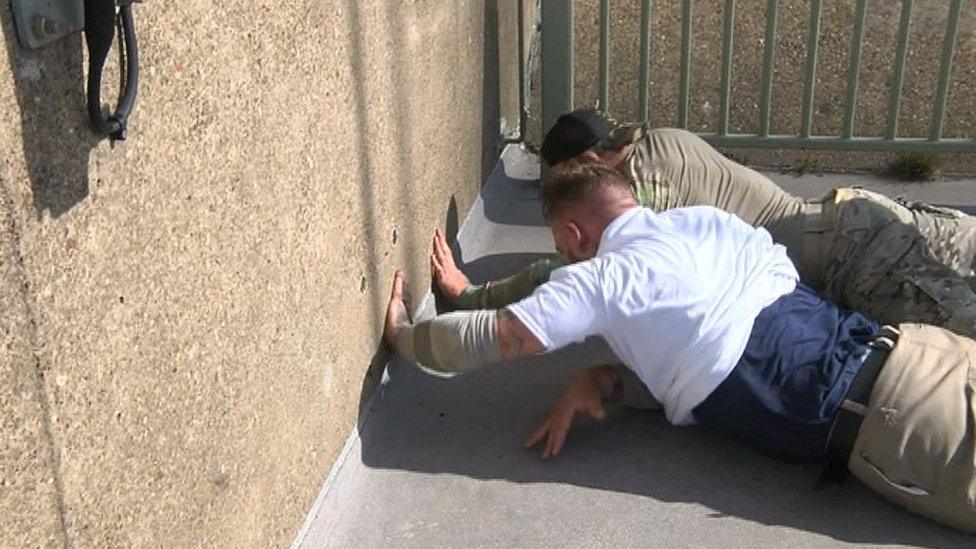
The challenge was completed in aid of the PTSD Resolution charity, which works with UK forces veterans
Two Army veterans who have suffered with post-traumatic stress disorder (PTSD) have crawled over the Humber Bridge to raise money for others with the condition.
David Neaves and Joe Hall, both from Yorkshire, completed the 4,659ft (1,420m) challenge in three hours and have raised more than £2,700.
Mr Neaves called for more government support for veterans' mental health.
The government said £2.3bn was being invested into mental health services.
Mr Neaves, originally from Beverley but now living in Grimsby, was part of Army operations in Northern Ireland, Bosnia, Iraq and Afghanistan during 14 years of service.
After leaving the military, he lost several friends to suicide and went into a "very dark place" two years ago, attempting to take his own life.
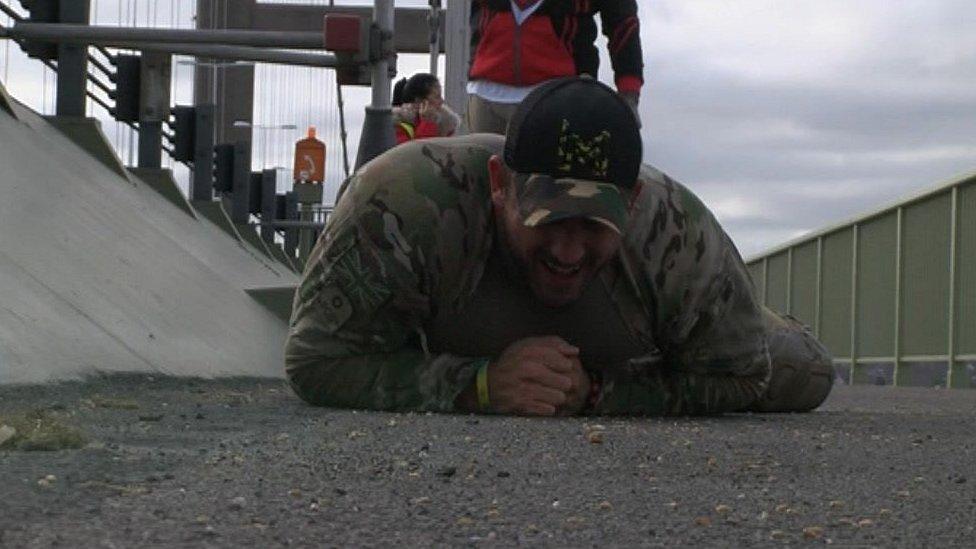
Mr Neaves said he suffered cramp and felt the challenge may have been too much to contend with after 984ft (300m)
He described the challenge, using the military technique of leopard crawling, as "excruciating" and considered stopping at one point.
"It's quite emotional, I'm thinking of all the people who are no longer with us, I was thinking about them while I was crawling across," he said.
"Hopefully we'll have raised enough money to save two or three lives so it's all worth it."
Mr Hall, who is from Hull and met Mr Neaves while in the Army, said: "It's physical pain going across the bridge, but it's nothing compared to the mental pain that veterans are going through.
"When you know it's done it's exhilarating, but I don't ever want to see the bridge again."
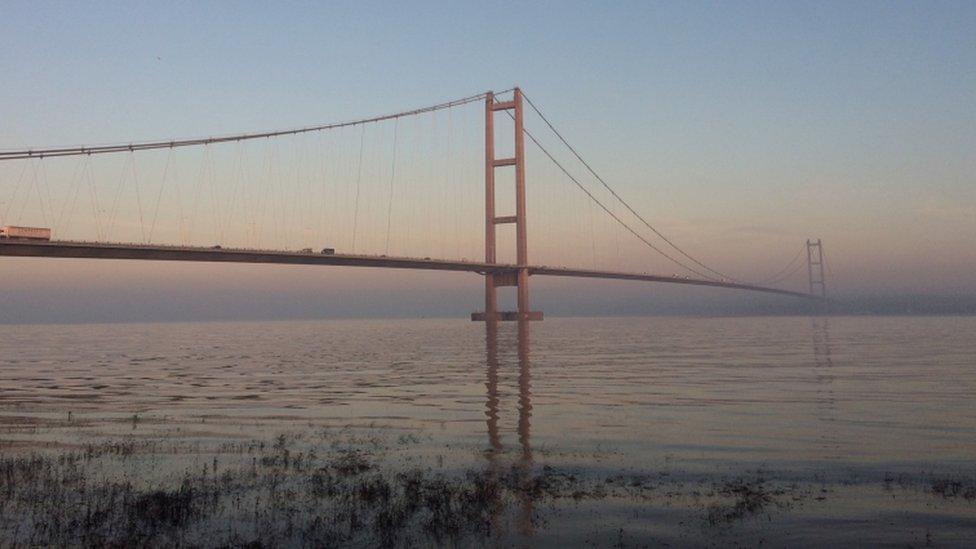
The Humber Bridge is one of the world's longest suspension bridges
Mr Neaves has called for dedicated 24-hour units within the NHS to "monitor and help" veterans who need support.
A Government spokesperson said: "It's important our veterans know that the NHS is here to provide expert, bespoke support for anyone struggling with their mental health.
"We're investing £2.3bn of extra money into mental health services and our Transition, Intervention and Liaison Service also provides bespoke support for veterans."

Follow BBC Yorkshire on Facebook, external, Twitter, external and Instagram, external. Send your story ideas to yorkslincs.news@bbc.co.uk
- Published4 September 2020
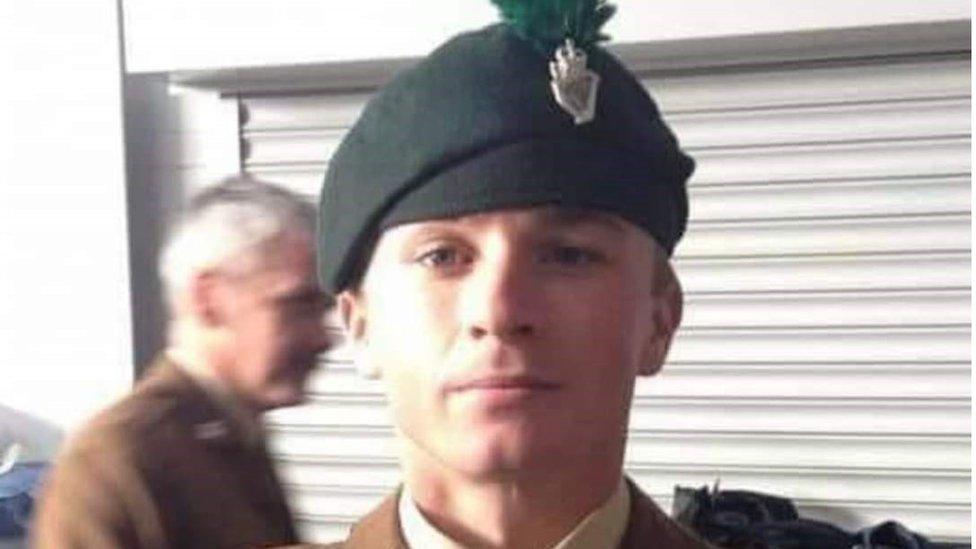
- Published6 July 2020
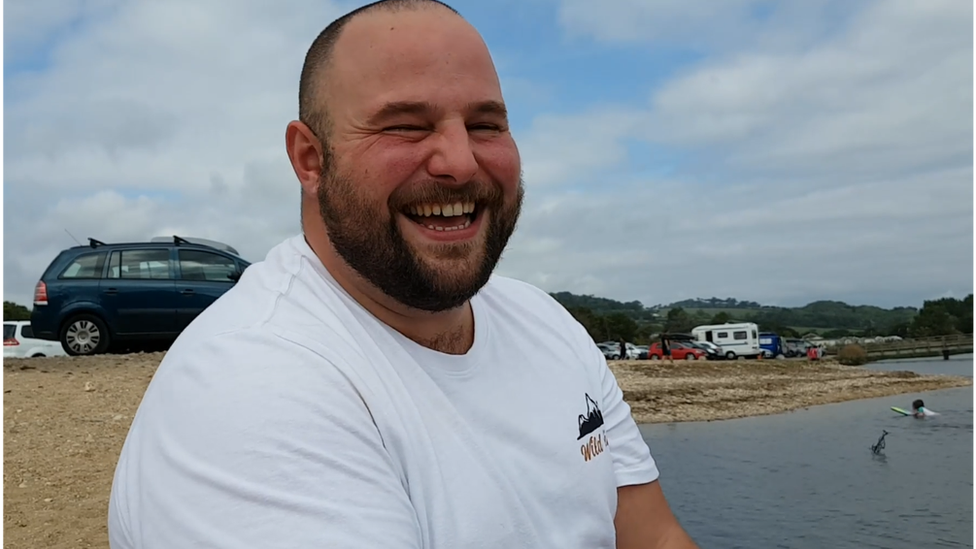
- Published6 November 2019
